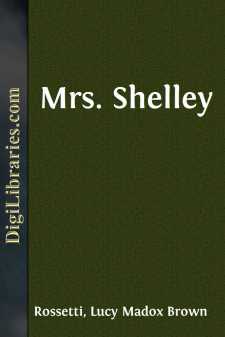Categories
- Antiques & Collectibles 13
- Architecture 36
- Art 48
- Bibles 22
- Biography & Autobiography 813
- Body, Mind & Spirit 142
- Business & Economics 28
- Children's Books 15
- Children's Fiction 12
- Computers 4
- Cooking 94
- Crafts & Hobbies 4
- Drama 346
- Education 46
- Family & Relationships 57
- Fiction 11828
- Games 19
- Gardening 17
- Health & Fitness 34
- History 1377
- House & Home 1
- Humor 147
- Juvenile Fiction 1873
- Juvenile Nonfiction 202
- Language Arts & Disciplines 88
- Law 16
- Literary Collections 686
- Literary Criticism 179
- Mathematics 13
- Medical 41
- Music 40
- Nature 179
- Non-Classifiable 1768
- Performing Arts 7
- Periodicals 1453
- Philosophy 64
- Photography 2
- Poetry 896
- Political Science 203
- Psychology 42
- Reference 154
- Religion 513
- Science 126
- Self-Help 84
- Social Science 81
- Sports & Recreation 34
- Study Aids 3
- Technology & Engineering 59
- Transportation 23
- Travel 463
- True Crime 29
Mrs. Shelley
Categories:
Description:
Excerpt
CHAPTER I.
PARENTAGE.
The daughter of Mary Wollstonecraft and Godwin, the wife of Shelley: here, surely, is eminence by position, for those who care for the progress of humanity and the intellectual development of the race. Whether this combination conferred eminence on the daughter and wife as an individual is what we have to enquire. Born as she was at a time of great social and political disturbance, the child, by inheritance, of the great French Revolution, and suffering, as soon as born, a loss certainly in her case the greatest of all, that of her noble-minded mother, we can imagine the kind of education this young being passed through—with the abstracted and anxious philosopher-father, with the respectable but shallow-minded step-mother provided by Godwin to guard the young children he so suddenly found himself called upon to care for, Mary and two half-sisters about her own age. How the volumes of philosophic writings, too subtle for her childish experience, would be pored over; how the writings of the mother whose loving care she never knew, whose sad experiences and advice she never heard, would be read and re-read. We can imagine how these writings, and the discourses she doubtless frequently heard, as a child, between her father and his friends, must have impressed Mary more forcibly than the respectable precepts laid down in a weak way for her guidance; how all this prepared her to admire what was noble and advanced in idea, without giving her the ballast needful for acting in the fittest way when a time of temptation came, when Shelley appeared. He appeared as the devoted admirer of her father and his philosophy, and as such was admitted into the family intimacy of three inexperienced girls.
Picture these four young imaginative beings together; Shelley, half-crazed between youthful imagination and vague ideas of regenerating mankind, and ready at any incentive to feel himself freed from his part in the marriage ceremony. What prudent parents would have countenanced such a visitor? And need there be much surprise at the subsequent occurrences, and much discussion as to the right or wrong in the case? How the actors in this drama played their subsequent part on the stage of life; whether they did work which fitted them to be considered worthy human beings remains to be examined.
* * * * *
As no story or life begins with itself, so, more especially with this of our heroine, we must recall the past, and at least know something of her parents.
Mary Wollstonecraft, one of the most remarkable and misunderstood women of even her remarkable day, was born in April 1759, in or near London, of parents of whose ancestors little is known. Her father, son of a Spitalfields manufacturer, possessed an adequate fortune for his position; her mother was of Irish family. They had six children, of whom Mary was the second. Family misery, in her case as in many, seems to have been the fountainhead of her genius. Her father, a hot-tempered, dissipated man, unable to settle anywhere or to anything, naturally proved a domestic tyrant....


